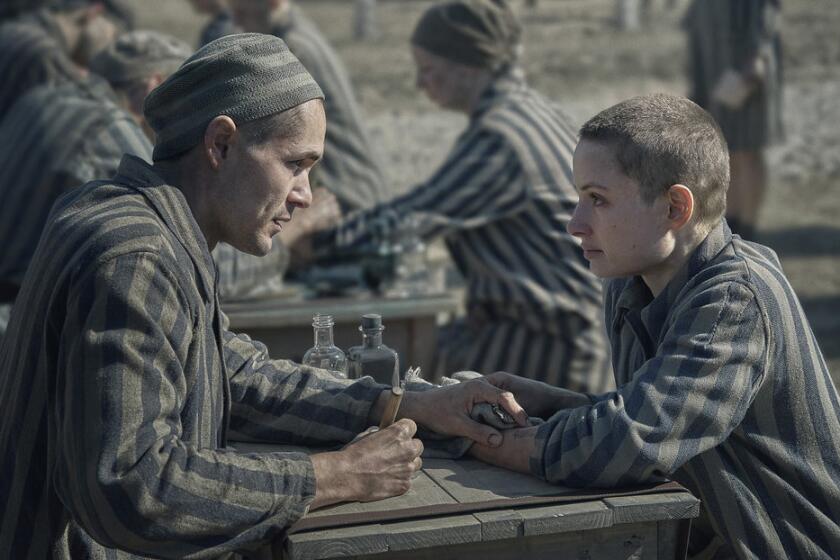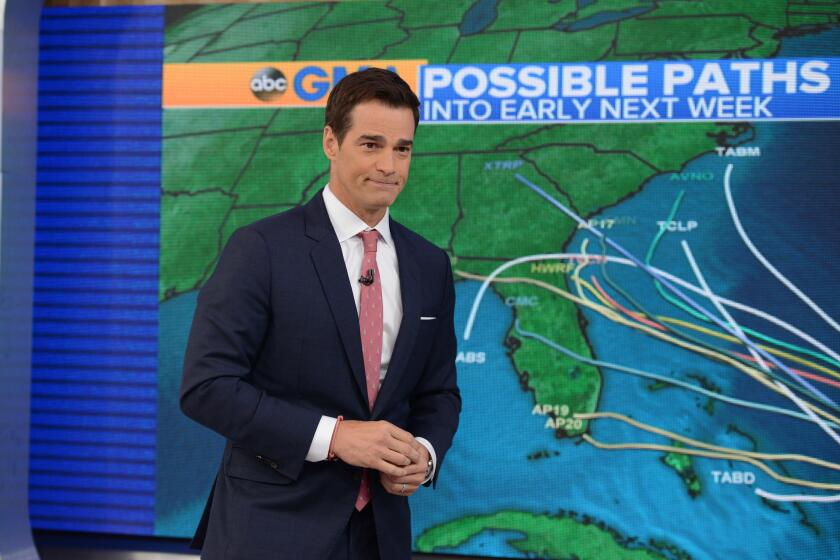2ND ‘STAR TREK’ FAMILY HURLED INTO FUTURE
A new, sleeker, more luxurious USS Enterprise will “boldly go where no man has gone before” this television season, but on this journey Capt. Kirk, Mr. Spock and the rest of the old “Star Trek” crew will man the bridge only in the memories of fans around the world.
Created by Gene Roddenberry--the writer, producer and futurist behind the original series--”Star Trek: The Next Generation” will zoom into the 24th Century with a new cast that includes a woman doctor, a blind man who drives the ship, a half-human, half-alien Betazoid, a reformed Klingon and a bald captain who speaks with a British accent.
Considering the enormous syndication success of the original series and the blockbuster box-office appeal of the four “Star Trek” films, it is easy to see Roddenberry’s commercial motives for creating a new “Star Trek” family. But for many hard-core fans, it is blasphemous to even imagine a “Star Trek” without William Shatner and Leonard Nimoy arguing morality in the face of some great catastrophe. Some of them wonder whether the new series could ever live up to the legend of the original.
Though Roddenberry declined to answer questions about his new show, his production staff and the cast were more than willing to speak for him.
“We have an important set of TV shows and movies to live up to,” says Richard Berman, co-supervising producer of the new series. “It is hard to compete with the nostalgic glaze over the show that makes it really special for (‘Star Trek’ fans). But what is endearing about ‘Star Trek’ is not the science fiction, but that each episode deals with moral issues. People seem to hunger for those kinds of stories, and we will continue to deal with the same kinds of issues.”
“Star Trek: The Next Generation” will have its local unveiling with a two-hour version at 8 p.m. Wednesday on KCOP Channel 13, then will continue in hourlong installments at 6 p.m. Saturdays, beginning Oct. 10, with repeats Sundays at 5 p.m.
Berman says that, in the “Star Trek” tradition, audiences should expect weekly morality plays about justice, ethics and a host of universal questions (with selfishness a running villain in the form of the monstrous-looking Ferengi creatures). But because those viewers have been spoiled by the sophisticated special-effects wizardry of “Star Wars” and a slew of other space movies, Paramount, which is producing and distributing the series, has spared little expense on the sets or the visual trickery. George Lucas’ Industrial Light and Magic is currently shooting many of the Enterprise’s out-of-this-world bursts into warp speed.
(Berman would not reveal the show’s budget, other than to say it is approximately that of what the networks spend for a typical one-hour show--which can vary between $750,000 per episode of a new series to more than $1 million for an established one.)
But no matter how fast the Enterprise rips through space, the fate of “Star Trek: The Next Generation” once again rests with the vagaries of syndication. The original series received lackluster ratings during each of its three seasons on NBC from 1966-69, taking off only when its reruns were syndicated a few years later.
Though Berman says that all three major networks and Fox Broadcasting expressed interest in this new project, Paramount decided to distribute the show to stations around the country. The series will be seen in 209 markets--including 108 network affiliates, 12 of which will preempt network programming to air it in prime time.
“People are looking for alternatives,” says Robert Justman, co-supervising producer, who also worked with Roddenberry on the original series. “NBC didn’t like us when they had us. They couldn’t peg us. They called it an action-adventure. Even the term science fiction scared them. I’ve resented it for many years, and I hope we steal lots of viewers away from the networks.”
Though no one is willing to predict how big an audience the series will attract in first-run syndication, freedom from the networks’ “standards and practices” brings a number of advantages.
“There’s a lot of sex on the ship,” says Marina Sirtis, a British actress whose half-human, half-alien character falls in love with the crew’s handsome first officer.
Sirtis and the rest of the cast realize that the original series is a tough act to follow. But they seem confident that the extra freedom to be bold and adventurous will help them overcome any lingering phantoms.
“There’s no way we could take any risk on the quality of the show,” Sirtis says. “People will be looking for our faults because of the long history of what came before.”
Perhaps the man most on the spot is Patrick Stewart, a member of London’s Royal Shakespeare Company, who plays Capt. Jean-Luc Picard. Though the character is not related to the now-deceased Kirk, his position as the man in charge of the Enterprise will inevitably invite comparisons to his predecessor.
But Stewart insists that the ghost of Kirk/Shatner will not haunt him on the new set. True, he says, his character wields power and commands the respect of his crew as Kirk did, but Stewart is no more uneasy playing the new captain than he’d be re-creating a classic stage role such as Hamlet or King Lear.
In fact, he says, the legacy of the show encouraged him to take the role in the first place. “There is something that is mythic about ‘Star Trek.’ It has become a part of the culture,” he said. “And I’m delighted to be a part of a new generation of something this big.”
The complete guide to home viewing
Get Screen Gab for everything about the TV shows and streaming movies everyone’s talking about.
You may occasionally receive promotional content from the Los Angeles Times.



